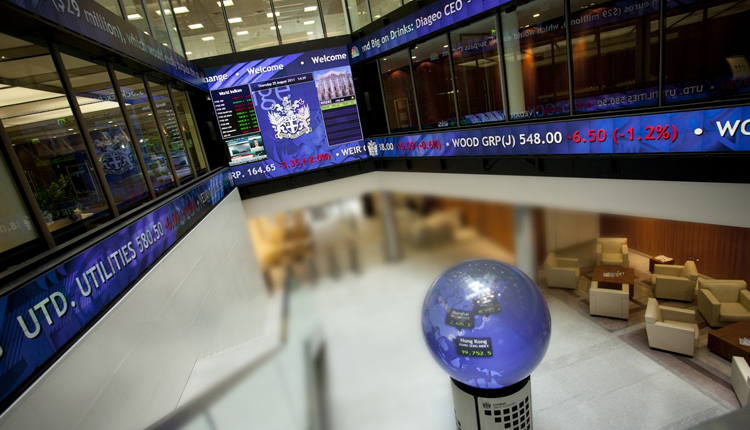European markets traded higher on Friday, amid a rally among technology shares and as investors continued to monitor U.S.-China trade developments.
The pan-European Stoxx 600 index rose 0.6 percent during trade, with tech stocks and trade-sensitive sectors like autos and basic resources among the top gainers.
The FTSE 100 was the only major bourse to close lower, dragged by Vodafone’s disappointing earnings and a rise in the value of sterling against the dollar.
Europe’s tech sector saw big gains even after U.S. chipmaker Intel posted earnings and guidance that missed analysts’ expectations. Semiconductor firm Siltronic was up more than 5 percent, while competitors STMicro and Infineon were more than 4 and 2 percent higher respectively by the close.
Looking at individual stocks, French automaker Renault climbed near to the top of the Stoxx 600 after Japanese Trade Minister Hiroshige Seko said it should maintain a stable alliance with Nissan. Concerns over their future ties have risen since the arrest of Carlos Ghosn, who led the car alliance. Shares of Renault were up almost 5 percent for the day.
In corporate news, Ericsson reported a 10 percent rise in quarterly sales year-on-year. The firm also trimmed operating losses, which came in lower than market forecasts. Ericsson’s share price jumped 3.1 percent.
U.K. rival Vodafone, on the other hand, fell 5.1 percent after reporting disappointing earnings. The firm said its key measure of revenue slowed in the third quarter, falling 40 basis points from the previous quarter to 0.1 percent. Chief Executive Nick Read also said the firm would “pause” further purchases of Huawei equipment for its core network.
Swedish telecommunications firm Telia, meanwhile, sunk towards the bottom of the European benchmark after it released worse-than-expected results and warned of a “challenging environment” in its home market. The stock fell 4.6 percent.
Elsewhere, Reuters reported on Friday that no one on the supervisory board of Deutsche Bank was pushing for a near-term merger with rival Commerzbank.
Meanwhile, the European Central Bank held interest rates steady on Thursday, and President Mario Draghi sounded the alarm on risks surrounding the euro area. The central bank’s chief warned on a “persistence of uncertainties related to geopolitical factors and the threat of protectionism, vulnerabilities in emerging markets and financial market volatility.”
Draghi’s comments sent the euro lower to a one-month low. However, the currency later broke off from that trend, rising 0.87 percent against the dollar to $1.1404 shortly after the closing bell for stocks.
As for data, German business morale fell for the fifth consecutive month in January and its lowest since February 2016, according to Munich-based Ifo Business Institute.
Trade spat
A big focus for investors this week has been the unresolved trade battle between Washington and Beijing. The two countries have been trying to find agreement over a 90-day tariffs truce, but talks appeared to hit a roadblock following a report that the Trump administration had cancelled a trade planning meeting with Chinese counterparts due to outstanding disagreements.
Commerce Secretary Wilbur Ross told CNBC on Thursday that the U.S. and China are “miles and miles” away from reaching agreement on their trade issues. The two countries are trying to meet a March 1 deadline to reach a deal.
Ross’ comments put pressure on U.S. equities on Thursday, although all major indexes opened higher on Friday morning while trade-sensitive Basic Resources stocks listed in Europe jumped nearly 3 percent on average.
Source: CNBC
